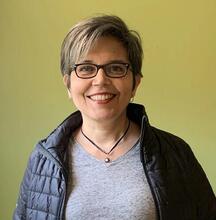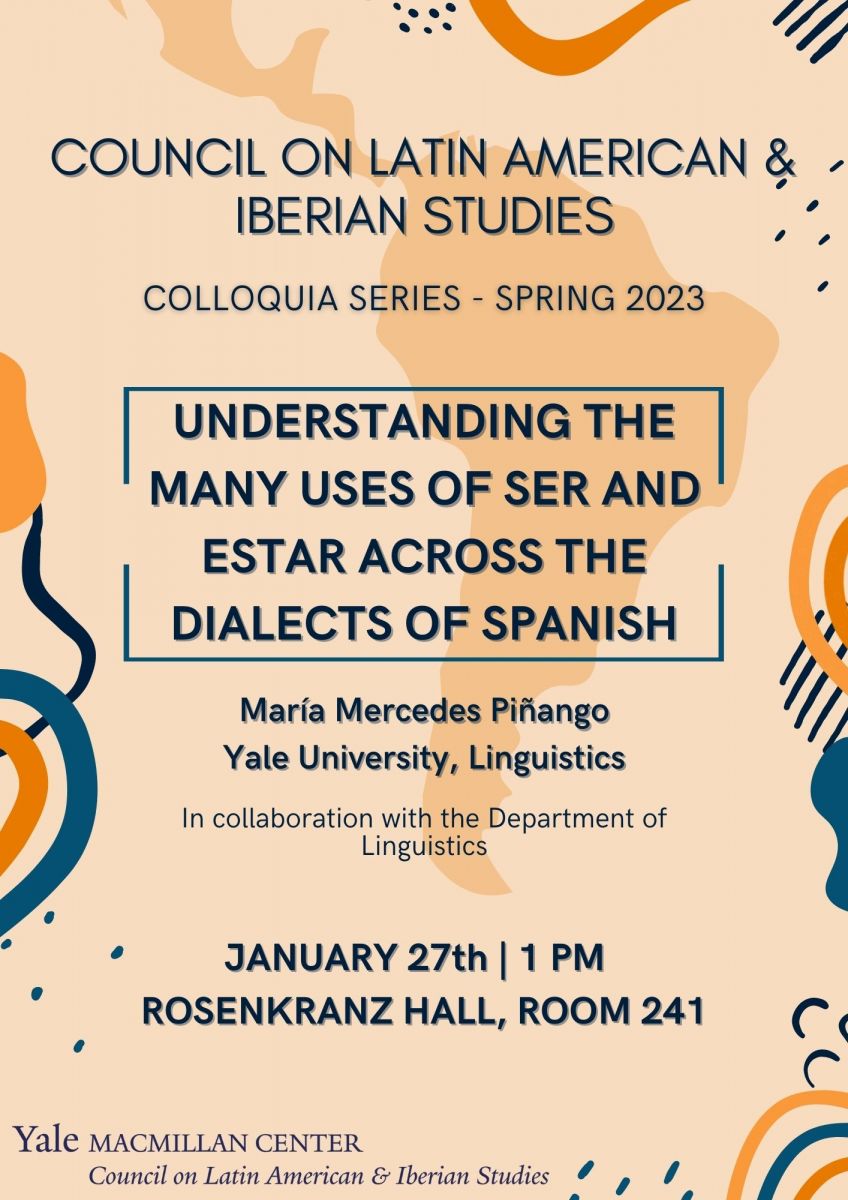Understanding Language and the Brain: An Interview with Maria Piñango

María Mercedes Piñango is an Associate Professor at the Yale’s Department of Linguistics. She directs the Language and Brain Lab, which lies at the crossroads of linguistics, psychology, neurology and neuroscience to respond to questions such as “What mechanisms allow us to combine word meanings to create other meanings, and in real-time, as we speak? Or, “What structures of the mind and mechanisms of the brain support this constant process of meaning generation?”
This Friday, January 27, Professor Piñango will inaugurate the CLAIS Colloquium this Spring semester. She will deliver the talk “Understanding the Many Uses of Ser and Estar Across the Dialects of Spanish” at 1 pm (Rosenkranz Hall, Room 241.) We spoke with her to learn more about her fascinating research and her upcoming talk.
How did you become interested in your research topic?
My research interests emerged over the years as a natural progression. They started with an interest in language structure, focusing on syntax and semantics, and expanded from there to an interest in the cognitive and biological basis of the system. Nowadays what connects all the research paths that I pursue is the question of how the language system is embedded in the rest of cognition, such that the means by which it conveys meanings are allowed to develop, vary, and change overtime.
Why did you choose Spanish and English as the languages for your research on Language and the Brain?
These are not the only two languages that we look at in the lab but they have certainly been central to the lab’s empirical domain. Normally, the empirical domain emerges from the interaction between the research questions of interest and the associated linguistic constructions, the way a specific language reveals that phenomenon, and the degree of access to the speakers of that language. Spanish as well as English have naturally met those criteria for many of the research questions I have pursued so far.

Could you share with us one counter-intuitive finding from your research?
One finding is that expressions that we normally understand as part of so-called “figurative” language such as idioms like “Sue gave Sam the cold shoulder” or metonymic expressions like “Last week in class we read Isabel Allende” are seen to be processed in a unified manner by the brain. These expressions appear to be underpinned by the same compositional mechanisms as those supporting their “literal” counterparts like “Sue gave Sam a cold drink” or ”Last week in class we talked to Isabel Allende”. That is, sometimes, our experience of linguistic expressions may appear categorical, yet the brain is in fact treating them in a unified manner. That understanding directly impacts how we model the architecture of the language system as a whole and of the cognitive system within which it works.
What is one common assumption about language and the brain that current research is helping disproof?
One common assumption is that if two individuals speak the same language, their corresponding brains are implementing the same mechanisms. The past decade has seen very interesting work, including from my lab, showing that the processing of language is not independent from the cognitive “setup” of the speakers of a language, a cognitive setup that is seen to vary across individuals. Accordingly, the way in which they process language also varies, challenging standard assumptions.
What projects are you working on at the moment?
We have various ongoing research lines at the moment including the work on the copula system of Spanish (Estar vs. Ser) that I will be talking about Friday. These research lines focus on different kinds of linguistic constructions and ask distinct questions. Yet, they all have in common the aim to uncover the linguistic and cognitive properties of structure of the system that supports the building of meaning in the mind as language composition unfolds.
By Alan Mendoza-Sosa, Graduate Communications Fellow, alan.mendoza-sosa@yale.edu
